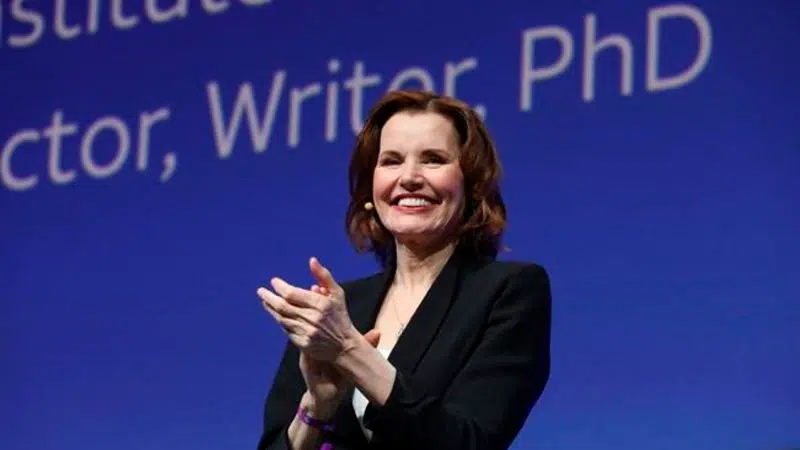
Screenwriters can play key role in gender parity, actors say
LOS ANGELES — Academy Award-winning actor Geena Davis says achieving gender parity on screen is simple, and it could happen overnight.
“Just go through (the script) and cross out a bunch of male first names and put female first names. That’s all you have to do,” Davis told the audience during a panel Saturday at AT&T’s SHAPE media conference in the Los Angeles suburb of Burbank.
Davis joined fellow actor Mayim Bialik on stage at the conference to discuss how gender parity in media can create social change. The conversation revolved around the need for diversity on screen to break stereotypes and encourage young people to pursue careers they might otherwise have felt were off limits to them.
“Of course, why wouldn’t we need to see people who are like us to be able to imagine what we could become?” Bialik said.
